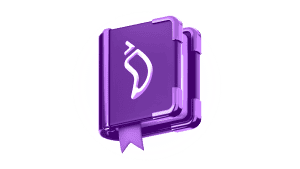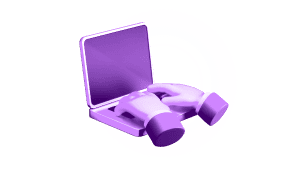In the world of cryptocurrency, wallets play a crucial role. They are not just a storage space for your digital assets, but they also act as a secure gateway to access and manage them.
What is a Wallet?
A wallet is essentially a software program that stores private and public keys. These keys are used to interact with various blockchain networks, allowing you to send, receive, and store cryptocurrencies.
Think of it as a digital bank account that holds your virtual money instead of physical cash. But unlike traditional bank accounts where you need to go through several verification processes, setting up a crypto wallet is relatively simple and can be done within minutes.
Types of Wallets
There are different types of wallets available, each with its own set of features and security measures. The most common ones are:
- Hardware Wallet (Cold Wallets): These are physical devices that store your private keys offline, making them less vulnerable to cyberattacks. Some popular hardware wallets include Ledger Nano S, Trezor, and KeepKey.
- Desktop Wallet: As the name suggests, these wallets are installed on a desktop computer or laptop. They offer more security than online wallets but can be susceptible to malware attacks.
- Online Wallet (Hot wallets): These wallets run on cloud-based servers and can be accessed from any device with an internet connection. While convenient, they pose a higher risk as they are vulnerable to hacking.
- Mobile Wallet: Similar to desktop wallets, mobile wallets are installed on a smartphone. They offer convenience and accessibility but may lack some security features compared to hardware or desktop wallets.
Why is Having a Wallet Necessary?
- Security: Cryptocurrency transactions are irreversible, which means if your private keys get compromised, you could lose all your funds. A wallet provides an added layer of security by encrypting your private keys and keeping them safe from potential threats.
- Control: With a wallet, you have full control over your digital assets. You can send or receive funds at any time without relying on third-party platforms or services.
- Storage: Since cryptocurrencies are digital assets, they need to be stored in a secure place. A wallet serves as your personal vault where you can store your funds and access them whenever needed.
How to Choose the Right Wallet
Look for these factors:
- Security Features: Look for wallets that offer advanced security features such as two-factor authentication, multi-signature support, and backup options.
- User-Friendly Interface: The wallet should have an easy-to-use interface for beginners and experienced users alike.
- Supported Cryptocurrencies: Some wallets only support specific cryptocurrencies, so make sure the one you choose supports the currencies you want to store.
- Development Team: It’s important to research the development team behind a wallet. Look for reputable and experienced developers with good track records.
Conclusion
Having a cryptocurrency wallet is essential for securely storing and managing digital assets. There are various types of wallets available, each with its own unique features and benefits. When choosing a wallet, make sure to consider factors such as security, user-friendliness, supported currencies, and the development team behind it.








